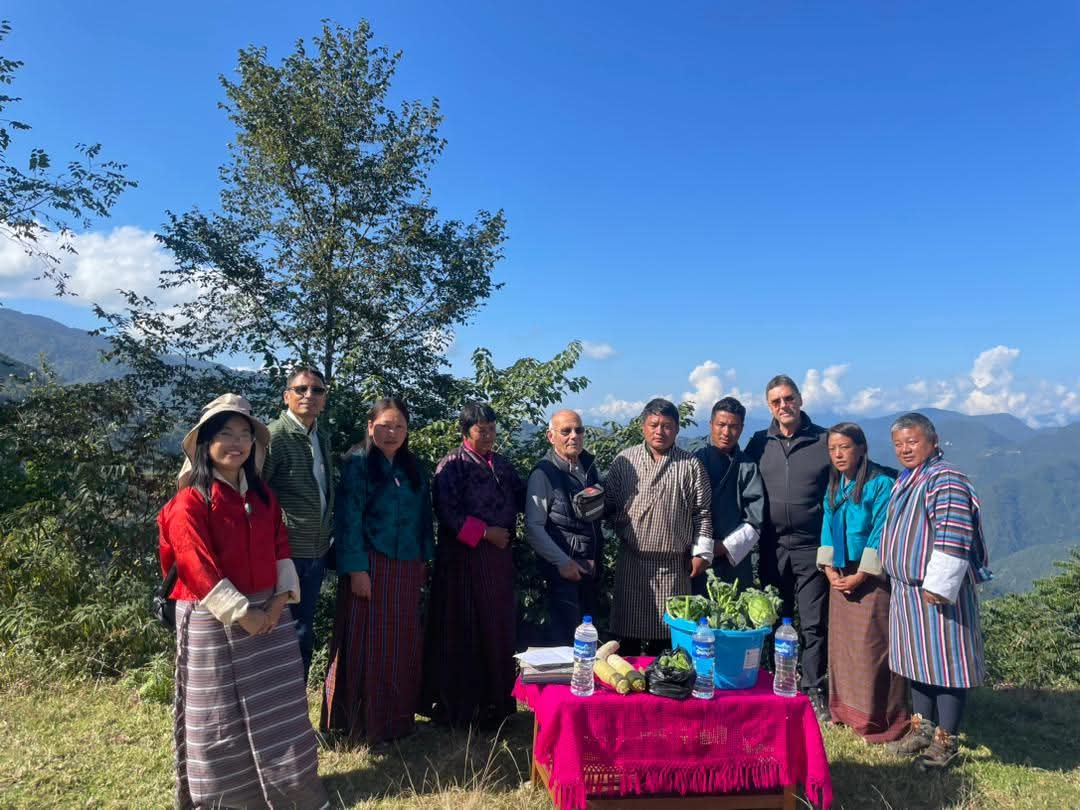Lumang, Trashigang – November 28, 2024
A dedicated team from Eco-Himal Austria, EcoHimal Nepal, and the Foundation for Climate Resilience recently conducted a comprehensive project monitoring visit to Bhutan, focusing on the Agroforestry for Climate Change Adaptation initiative. The project, implemented in Trashigang, Trashiyangtse, and Dagana Dzongkhags, aims to enhance climate resilience and benefit over 1,000 households through sustainable practices.
The team, led by Dr. Kurt Luger, Dr. Rudolf, and EcoHimal Nepal Executive Director Mr. Dhakal Eak Narayan, visited Lumang from November 17th to 21st. They were joined by local leaders, including Gups, Tshogpas, and community representatives, to review the project's progress and foster stronger collaborations.
Key Highlights of the Visit
1. Engaging with Beneficiaries
The team interacted with the Khasingri community, inspecting water supply facilities such as reservoir tanks and water taps. This direct involvement helped strengthen ties between project implementers and beneficiaries.
2. Innovative Approaches to Human-Wildlife Conflict
The progress of electric fencing, introduced to address human-wildlife conflicts in Kharphu village, was closely monitored.
3. Showcasing Community Impacts
The Kharphu Tshogpa presented the transformative impact of the project on the Lumang community, emphasizing its role in enhancing climate resilience.
4. Sustainable Land and Water Management
Sustainable land management practices and Springshed Management initiatives were reviewed in Lumang, with constructive discussions held with the Darna community.
5. Preserving Local Knowledge
The communities showcased seed diversity, bamboo nurseries, and modern agricultural machinery, highlighting the project's focus on local food security and green technologies.
6. Feedback and Future Collaborations
The team consulted local leaders about challenges and opportunities, ensuring a collaborative approach for future endeavors.
Strengthening Partnerships
Back in Thimphu, the team met with the Foundation's Executive Director to exchange feedback and explore opportunities for collaboration. They also revisited the Mountain Hazelnut Orchard in Chagtagang, reaffirming their commitment to re-establishing past partnerships.
Cultural Exploration
The visit concluded with the team experiencing Thimphu's cultural heritage. Stops included the National Zoo, Buddha Point, and local handicraft shops. A final wrap-up session celebrated the project's progress and outlined the road ahead.
A Commitment to Sustainability
This three-year project (2023-2025) focuses on promoting climate-resilient farming, preserving local seeds, managing land and water resources, and improving access to credit. These efforts aim to build climate resilience and sustainable livelihoods for Bhutanese communities.
Eco-Himal extends heartfelt gratitude to all stakeholders for their invaluable contributions. Together, these efforts are paving the way for a greener, more sustainable future.
Ecosphere News – Reporting progress towards global sustainability.